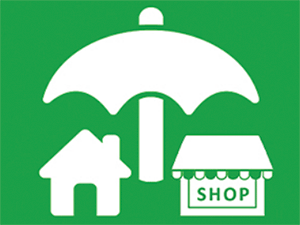Review Your Insurance and Know Your Policy
 Homeowners, businesses, recreational owners, tenants, and others can suffer devastating losses during a disaster. Whether it is a house fire, hurricane, or flood, you can protect yourself, and ease the cleanup by having adequate insurance. Being prepared to file an insurance claim before a disaster, will speed the process once disaster strikes. Insurance isn’t meant to cover predictable events like regular home maintenance, it is there to help you cope with the financial burden of unpredictable events that are sudden and accidental.
Homeowners, businesses, recreational owners, tenants, and others can suffer devastating losses during a disaster. Whether it is a house fire, hurricane, or flood, you can protect yourself, and ease the cleanup by having adequate insurance. Being prepared to file an insurance claim before a disaster, will speed the process once disaster strikes. Insurance isn’t meant to cover predictable events like regular home maintenance, it is there to help you cope with the financial burden of unpredictable events that are sudden and accidental.
Insurance for most hazards is available for vehicles, homes and their contents, businesses, farm buildings, livestock, and equipment. Check regularly with your insurance representative to ensure you have appropriate and adequate insurance coverage. In some cases, an additional policy or rider may be required for certain types of insurance coverage. Be sure to review your situation with the insurance agent or broker.
- Insurance coverage is available for most major disasters including fire, hurricane, lightning strikes, windstorms, hail, and many others. Overland and inland flood coverage (PDF) is not automatically covered and may not be available to all homeowners.
- Make sure your policy includes sewer back-up insurance.
- Keep a detailed paper and/or photographic/video inventory of your residence or business. Ask your insurance company what they require before the need to place a claim arises. Keep copies of your information in your emergency kit – it will be invaluable in an emergency. Click to create your own personalized Home Inventory
- Make sure your insurance policies and related records are in a safe location and easily available after an emergency or disaster.
- The Insurance Bureau of Canada (IBC) has information on home, auto and business insurance. Contact IBC at 1-844-227-5422 or visit the Insurance Bureau of Canada
- Be aware that government Disaster Recovery Programs will not compensate for damage and loss for which insurance was readily and reasonably available before the disaster occurred.
- Review your Insurance annually to ensure the coverage is still accurate for your individual, family, and business needs.
Homeowner
Home insurance covers the dwelling, contents, and personal liability of you (the policyholder), your spouse or partner, and your children. Consider the rebuilding costs, replacement value over the years, and coverage for your belongings. Learn more about Homeowner’s Insurance.
Businesses
Insurance protects you from losses that may pose a significant threat to your business operations. A major loss to one organization may be a trivial loss to another. There are many different factors to consider for businesses such as coverage, deductibles and policy limits. Learn more about Business Insurance.
Tenants
Tenant’s insurance is available to help you replace your belongings after a loss due to theft, fire, or water damage. Insurance pays for extra costs to help you get back on your feet after a loss. Insurance also protects you if someone gets hurt or someone else’s property is damaged because of your negligence. Learn more about Tenant’s Insurance (PDF)
What is Tenant Insurance?

Contents Insurance
Insures the actual cash value or the replacement cost of your possessions.
Personal Liability Coverage
Covers claims made against you due to damage or injury in your unit.
Additional Liability Expense Coverage
Covers a portion of your living expenses should you be forced to vacate.
Landlords
Familiarize yourself with the rights and responsibilities of landlords and tenants. As a landlord, landlord insurance can help cover the cost of damage to your property as well as replace rental income. Learn more about Landlord’s Insurance (PDF).
Recreational Owners
Insurance for seasonal or secondary properties works differently than insurance for your primary home. Seasonal properties are used primarily for recreation at certain times of the year or month. Don’t forget to consider the sheds, boats, recreational vehicles as well. Learn more about Recreational Insurance.
To learn more about how to protect yourself – Know Your Policy.
Water Damage is on the RIse: Are you Protected? (PDF)


 Homeowners, businesses, recreational owners, tenants, and others can suffer devastating losses during a disaster. Whether it is a house fire, hurricane, or flood, you can protect yourself, and ease the cleanup by having adequate insurance. Being prepared to file an insurance claim before a disaster, will speed the process once disaster strikes. Insurance isn’t meant to cover predictable events like regular home maintenance, it is there to help you cope with the financial burden of unpredictable events that are sudden and accidental.
Homeowners, businesses, recreational owners, tenants, and others can suffer devastating losses during a disaster. Whether it is a house fire, hurricane, or flood, you can protect yourself, and ease the cleanup by having adequate insurance. Being prepared to file an insurance claim before a disaster, will speed the process once disaster strikes. Insurance isn’t meant to cover predictable events like regular home maintenance, it is there to help you cope with the financial burden of unpredictable events that are sudden and accidental.